Power outages seem to be happening more frequently these days, especially during extreme weather events like snowstorms, hurricanes, and heatwaves. While brief outages are merely an inconvenience, longer ones can be dangerous and costly. Having a home generator provides peace of mind that your power and heat will stay on when you need it most.
Make sure your home is prepared by having a reliable backup generator on hand. This guide will provide an overview of the major types of home generators and features to look for when choosing the right model for your needs and budget. We’ve also rounded up our picks for the top-rated home generators in three popular categories: standby, portable, and inverter.
Why You Need a Home Generator
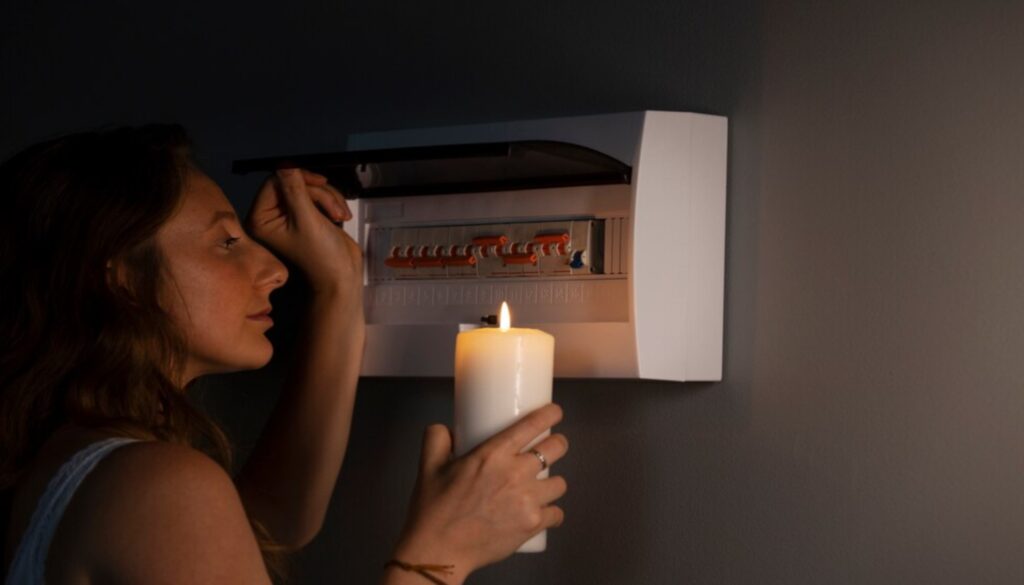
Power outages can happen when you least expect them. A storm rolls in, a tree falls on some power lines, or even a small animal gets into the wrong place at an electric substation. Whatever the cause, you’re suddenly left without power. No electricity means no lights, no refrigerator or freezer, no cooking appliances, no TV or internet.
It’s a huge inconvenience at best. At worst, it can be downright dangerous. Medications may need refrigeration, medical devices may require power, or health conditions could worsen without climate control. A home generator brings the power back quickly, so you can:
- Keep the heat or AC running to maintain safe temperatures. This is especially critical for infants, the elderly, or the infirm.
- Keep food fresh and safe by running your refrigerator and freezer. No more worrying about losing hundreds of dollars in spoiled food.
- Charge devices and appliances so you can stay connected and entertained. Run lights, the TV, computers, gaming consoles, etc.
- Power medical devices like CPAP machines for uninterrupted use. Some conditions simply can’t go without
- Feel secure with your home alarm system active. Deterring theft and monitoring emergencies gives peace of mind.
- Run small kitchen appliances to cook food. Even just the ability to make coffee, toast, or heat soup provides comfort.
Protecting your home, food, and loved ones is reason enough to invest in a quality backup generator. It’s reliable insurance against the disruption of an unexpected outage. Keep reading to learn more about the types of home generators and features to look for.
Types of Home Generators
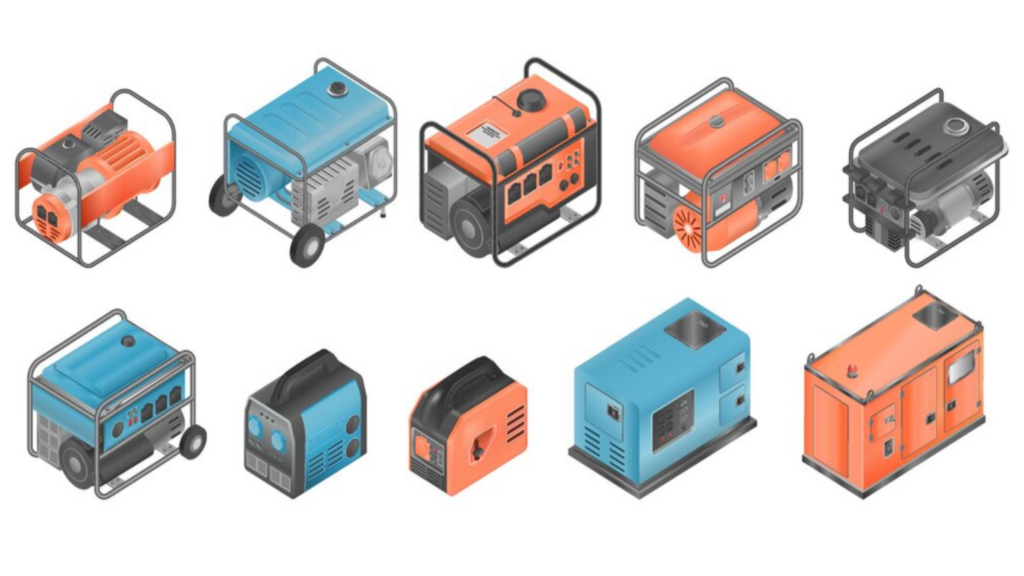
When shopping for the best home generator, you’ll come across 3 main types:
Standby Generators
Standby generators are designed for permanent installation and connect directly to your home’s electrical system. They automatically turn on seconds after the power goes out. Standby generators are larger and more expensive but provide backup power to your entire home.
Portable Generators
Portable generators are gas-powered and easy to move around on wheels. You manually start them and connect devices and appliances directly to the generator’s outlets using extension cords. Portable generators are more affordable and can power essentials, but not your whole home.
Inverter Generators
Inverter generators are a type of portable generator that use advanced inverter technology to convert the engine’s AC power to clean, stable DC power. This makes them quieter, more fuel efficient, and safer for sensitive electronics. Inverter generators are more expensive than conventional portable generators but worth it for their advanced features.
Keys Features to Look for When Shopping for a Home Generator
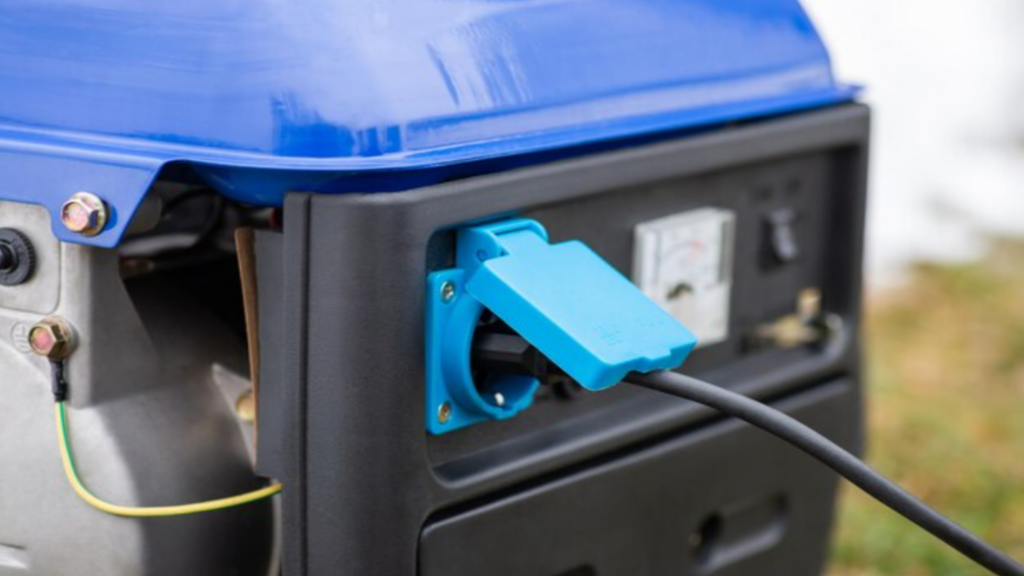
There are several key features you’ll want to consider:
Fuel Type
Gasoline generators are most common for home use. They’re affordable, portable, and provide adequate power. Ensure it has an automatic shutoff, so it doesn’t run out of gas.
Propane generators run very quietly and are more environmentally friendly. However, you’ll need a large external propane tank. Diesel generators can provide power for a long time. They’re ideal for large permanent installations but are louder and bulkier.
Natural gas generators are connected to your home’s gas supply, they turn on automatically during an outage. No refueling required but must be professionally installed.
Output Wattage
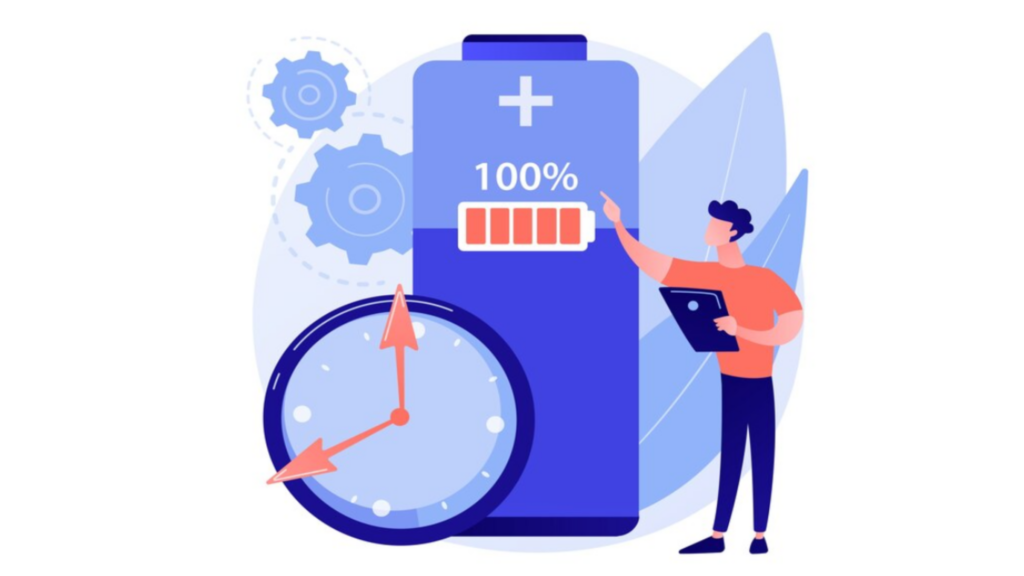
The wattage indicates how much power the generator can supply. Consider what you want to run during an outage to determine the right wattage. For example:
- 5000W can run a furnace, fridge, lights and small appliances.
- 7000W can power more lights, appliances and a sump pump.
- 10,000W+ can power an entire home.
Noise Level

Look for generators rated around 59-65 decibels for quiet operation. Inverter generators with enclosures are the quietest. Larger conventional generators can be very loud, so keep them away from windows. Choosing the right features will ensure your generator provides the power you need during an outage, while suiting your fuel, noise and portability preferences.
Top Picks for Standby Generators
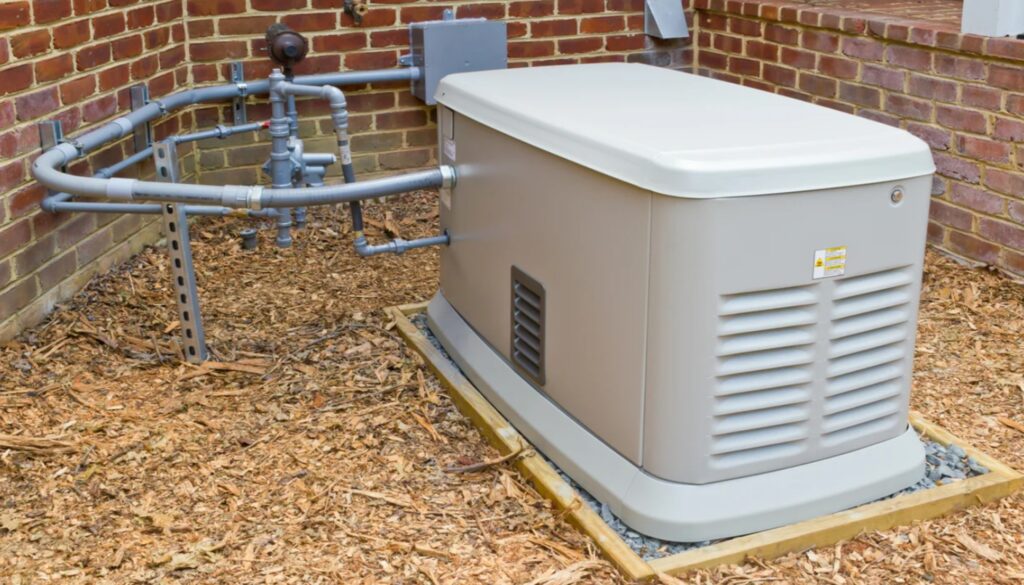
Standby generators are permanently installed outside your home and connect directly to your existing electrical system. They automatically turn on within seconds of a power outage, so you don’t experience any interruption. Standby generators are ideal if you want seamless backup power for your whole home.
Generac: Generac is one of the most popular brands for standby generators. Their Guardian series offers power outputs ranging from 17 kW to 60 kW, able to cover essential circuits or your entire home. It runs on natural gas or propane.
Kohler: Kohler standby generators provide commercial-grade power for larger homes and properties. The 14RESAL model provides 14 kW of power on natural gas or LP fuel.
Briggs & Stratton: For a more budget-friendly option, Briggs & Stratton offers reliable standby generators in the 10-17.5 kW range. The Fortress 17.5 kW is ideal for homes from 2,000-5,000 sq ft.
Top Picks for Portable Generators
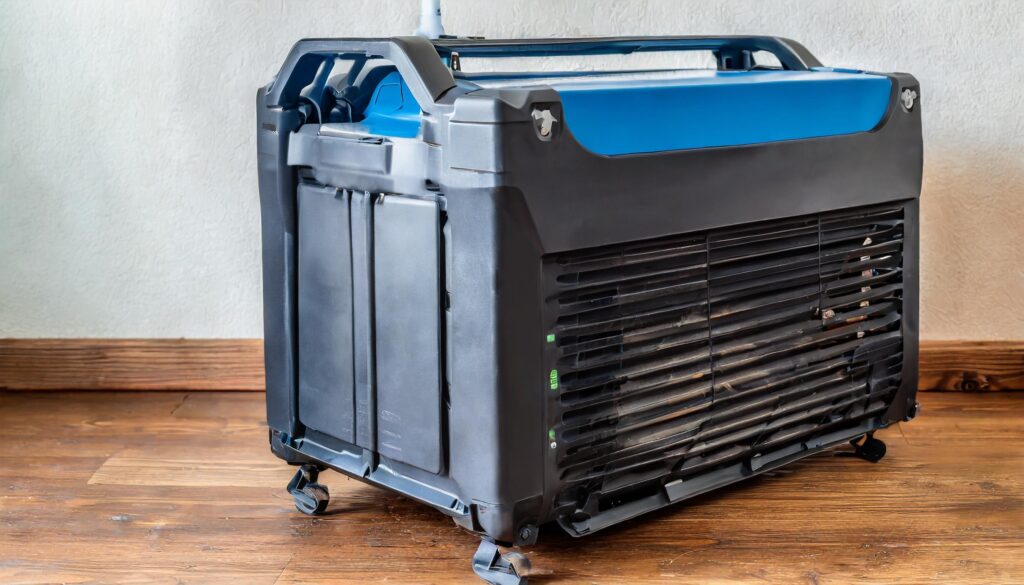
Portable generators provide electricity on demand and can be moved around easily on wheels or carrying handles. They’re great for powering appliances and tools at home or job sites when you lose electricity. Here are some top picks:
Honda EU2200i: This super quiet, inverter generator from Honda provides 2200 watts for up to 8 hours on a tank of gas. It’s lightweight at only 46 lbs. and features their superior inverter technology for clean power that’s safe for sensitive electronics. The intuitive controls and fuel-efficient engine make it easy to operate.
Champion 3400-Watt Dual Fuel Portable Generator: For more power, the Champion 3400 watt unit can provide electricity for RV camping, home backup, or job sites. It runs on gasoline or propane for versatility. With a touch start and included RV outlet, it offers convenient power on the go.
Yamaha EF2000iSv2: Known for excellent performance and reliability, this quality portable from Yamaha offers 1600 running watts and 2000 starting watts. It’s an inverter generator so safe for computers. Noise reduction makes it one of the quietest portables at only 51 decibels. It’s a great choice for camping and tailgating.
When choosing a portable generator, consider your power needs, fuel type preference, noise level, and ease of transport. Sizing correctly for the appliances you need to run is also important. The portable models highlighted here provide reliable home backup power to keep your essentials running during outages.
Top Picks for Inverter Generators
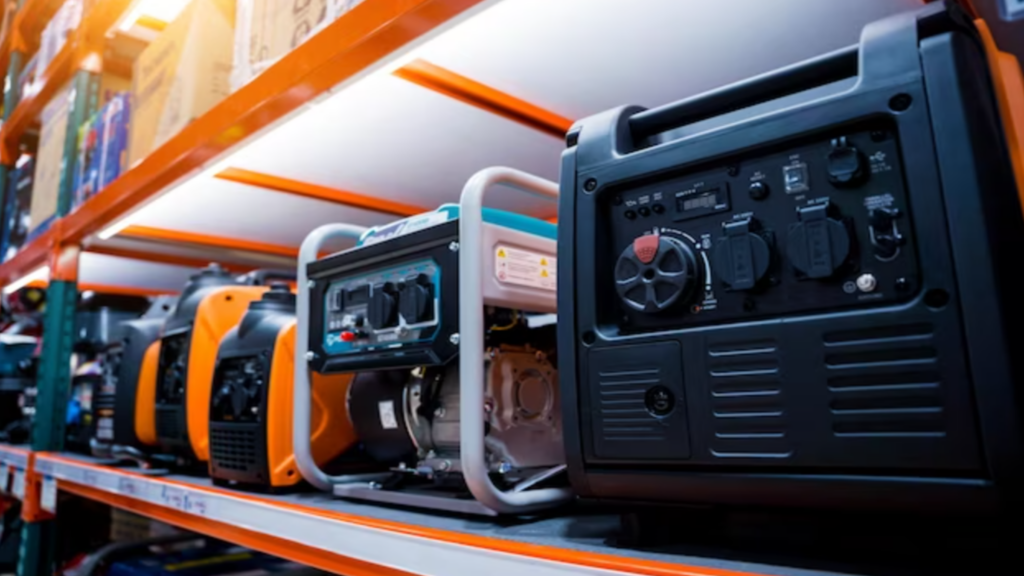
Inverter generators are ideal for sensitive electronics thanks to their stable, clean power output. Here are some top options to consider:
Honda EU2200i: The Honda EU2200i is one of the best portable inverter generators on the market. It provides 2,200 watts of maximum power, which is enough to run most appliances.
Westinghouse iGen2200: With 2,200 watts of power, the Westinghouse iGen2200 is a budget-friendly inverter generator option. While not as advanced as Honda or Yamaha models, the Westinghouse iGen2200 provides reliable power at a more affordable price point. It’s a good choice for essential backup power during outages.
Installation and Maintenance
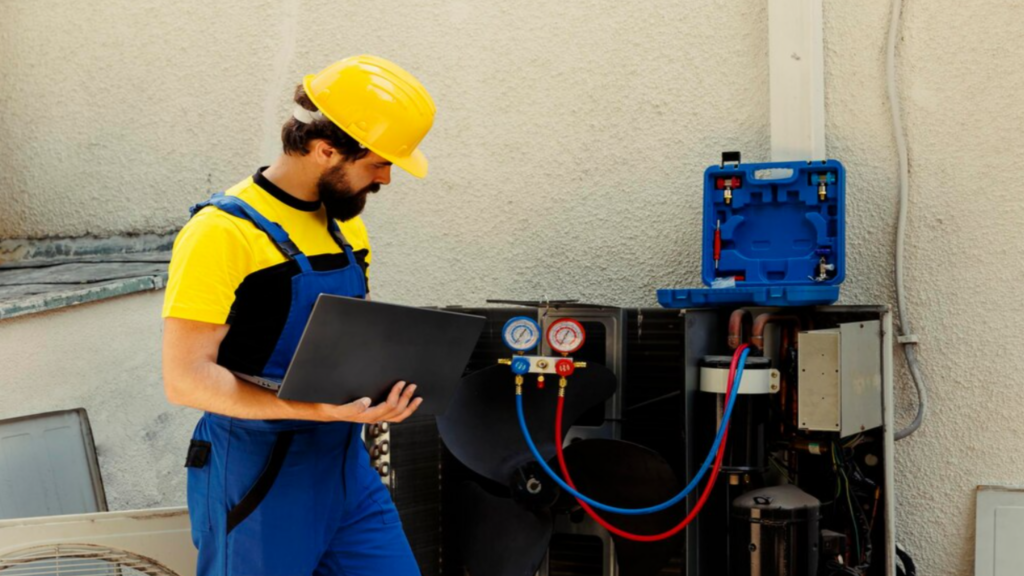
Most home generators are complex machines requiring professional installation for optimal performance and safety. Trying to install a standby or portable generator yourself risks potentially dangerous errors in fuel line connections, improper ventilation, or electrical wiring issues. Always have a licensed electrician or certified dealer install your home generator.
Proper maintenance is also key for a home generator. Like a car, generators need periodic tune-ups, oil changes, battery replacements, and cleaning of fuel lines/filters. Refer to your owner’s manual for the recommended maintenance schedule and procedures.
At minimum, you should visually inspect the generator at least monthly when not in use. Check for leaks, debris buildup, corrosion, and other potential problems. Change the oil and filters per the manual’s guidelines. Replace the battery every 3-4 years. And run the generator at least monthly to keep components lubricated and prevent stale fuel.
Regular maintenance extends the generator’s lifespan, ensures efficient operation when you need it most, and helps avoid unexpected failures or safety issues. Considering the upfront investment for a home generator, protecting your purchase with proper installation and maintenance is well worth the time and cost.
Safety Tips
Having a generator can provide great peace of mind when the power goes out. However, generators can also pose safety risks if not used properly. Here are some key safety tips to keep in mind:
Ensure proper ventilation- Never run a generator inside your home or garage, or near doors, windows, or vents. The exhaust contains poisonous carbon monoxide. Run your generator at least 20 feet away from your home, downwind from occupied spaces.
Install carbon monoxide alarms- Since a generator emits carbon monoxide, be sure to have CO alarms inside your home. Test them regularly to ensure they are functioning.
Turn off the generator before refueling- Gasoline and other fuels are highly flammable. Always turn off your generator and let it cool down before attempting to refuel it.
Keep children and pets away- Don’t let children or pets near the generator when it is running. They could be injured by hot surfaces or moving parts.
Avoid getting shocked- Never touch a generator with wet hands or when standing in water. Only operate on dry surfaces and keep the generator dry when not in use.
Have a fire extinguisher nearby- Be prepared in case of a fire caused by a fuel or electrical malfunction. Know how to use your fire extinguisher properly.
Get a qualified electrician- If connecting your generator to your home’s wiring, consult an electrician to ensure it is done safely and correctly.
Follow all manufacturer safety guidelines- Review the safety section in your generator’s manual thoroughly and follow all instructions provided. Taking proper safety precautions will help ensure you can run your generator securely when you need it most. A home generator can be a great asset if used wisely and carefully.
Home Generators Give You Power When You Need It Most

Having a backup generator during winter weather is crucial to keep your home powered during outages. In this article, we covered the main types of home generators and key features to consider when choosing one.
When installing your generator, always follow local electrical codes and have a professional handle the electrical connections. Maintain it by testing it monthly and replacing oil, filters, and batteries as needed. Use ground fault circuit interrupters, avoid overloading the generator, and never operate it indoors.
With the right home generator, you can keep your family comfortable and safe during power outages this winter. Choose a model with enough output for your needs and be sure to use it properly. For more information on home generators and other HVAC equipment, contact one of our expert energy advisors and they will be more than happy to assist you.
Related Posts
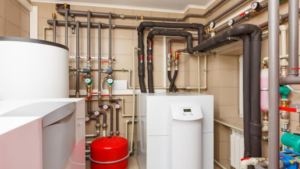
The Ultimate Boiler Repair Guide
Master DIY boiler repair: fix leaks, no heat, odd sounds. Step-by-step guide and when to hire pros. Perfect for self-servicing homeowners.
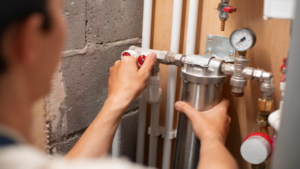
Emergency Furnace Repair: What to Do When Your Heat Goes Out
Emergency Furnace repair required? Find 24/7 repair services, stay warm, and ensure safety until help fixes it quickly.
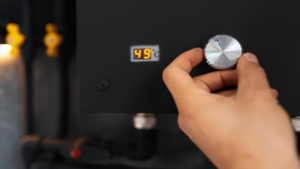
Gas Water Heater Vs. Electric Water Heater
Electric vs. gas water heater? We compare efficiency, long-term savings, and upfront costs of both so that you can make an informed decision.

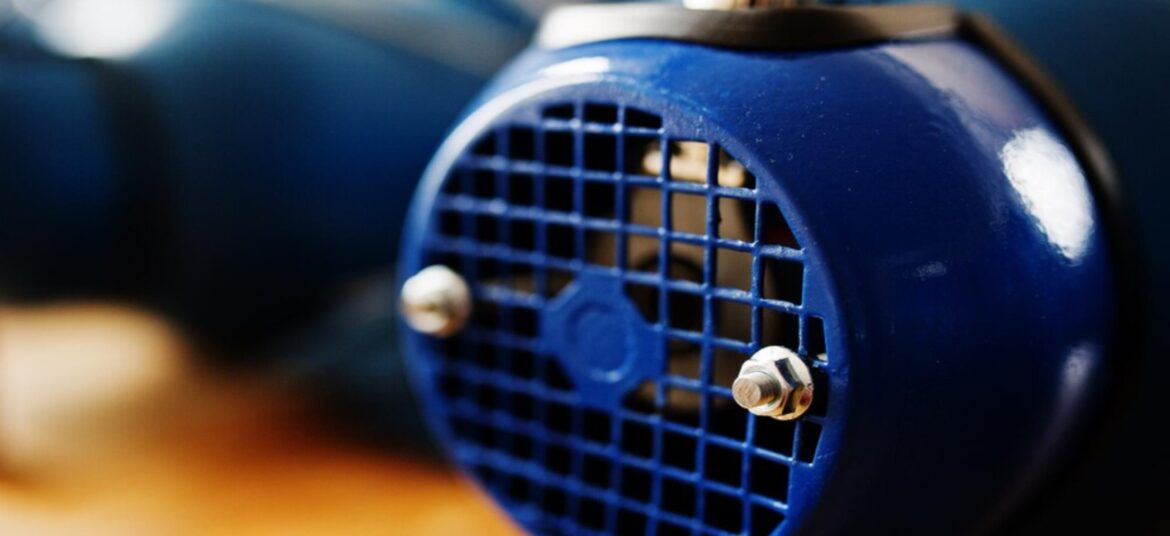
No Comments